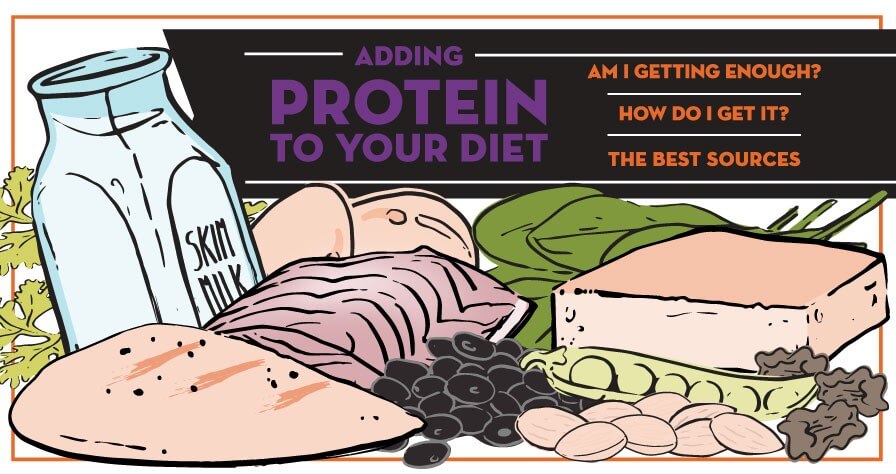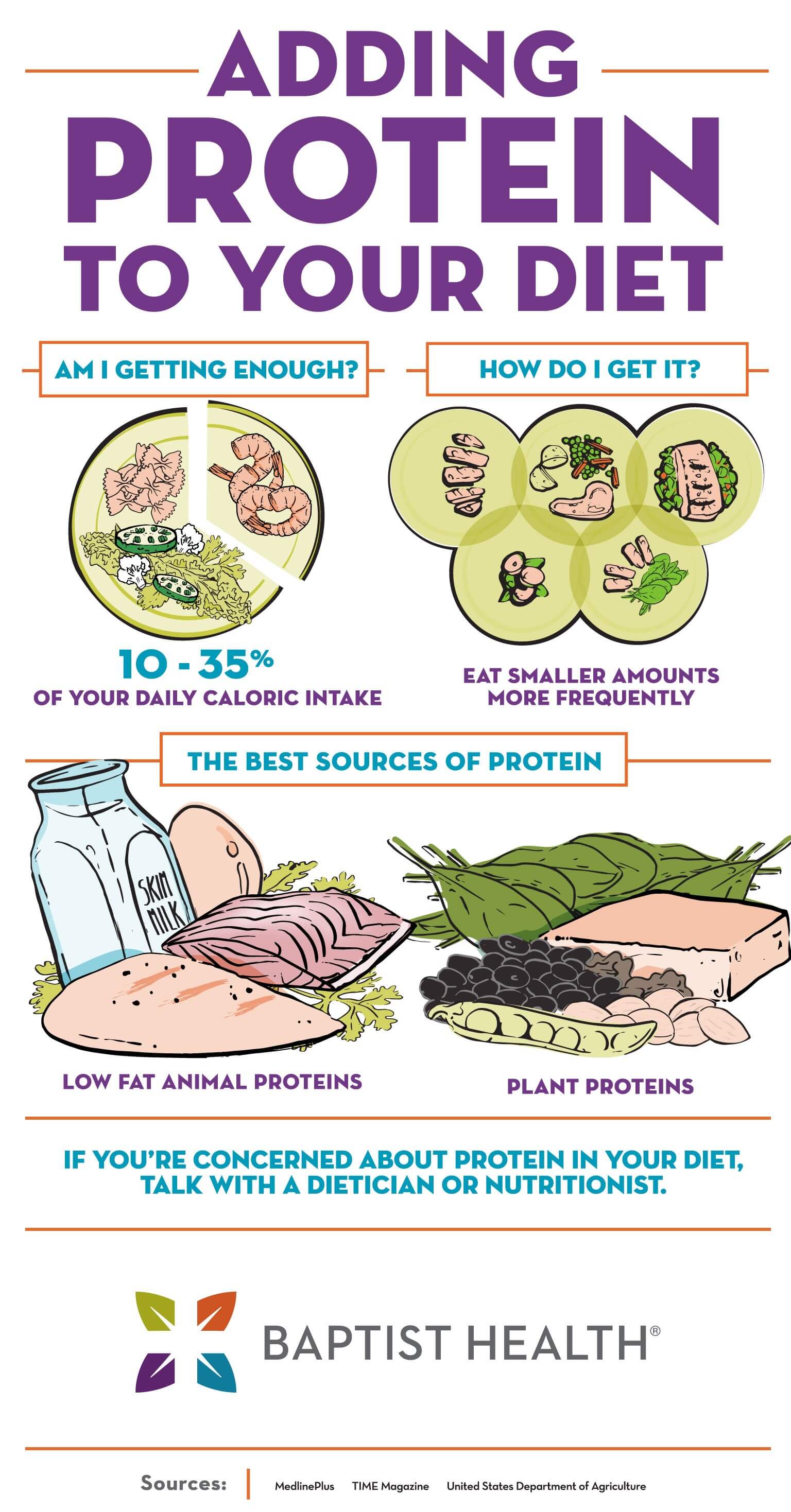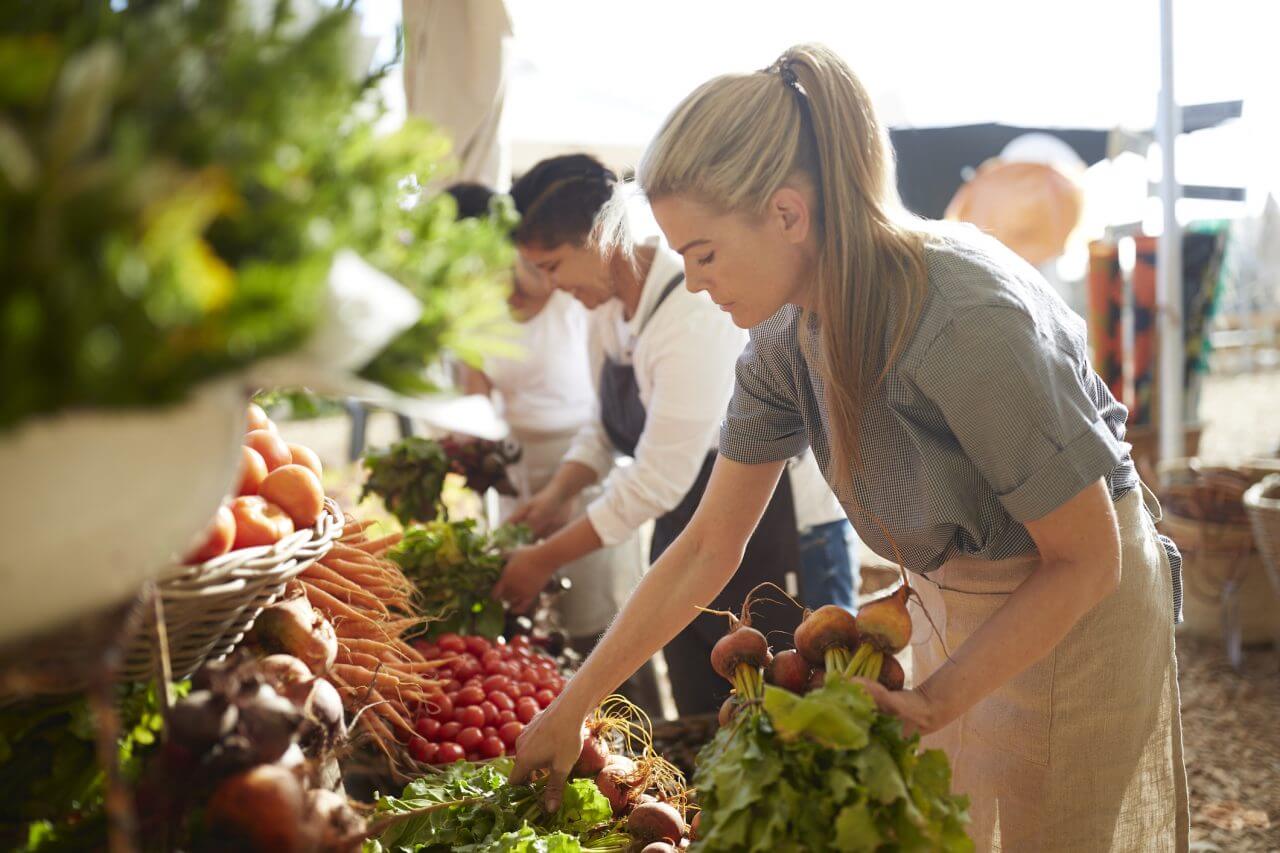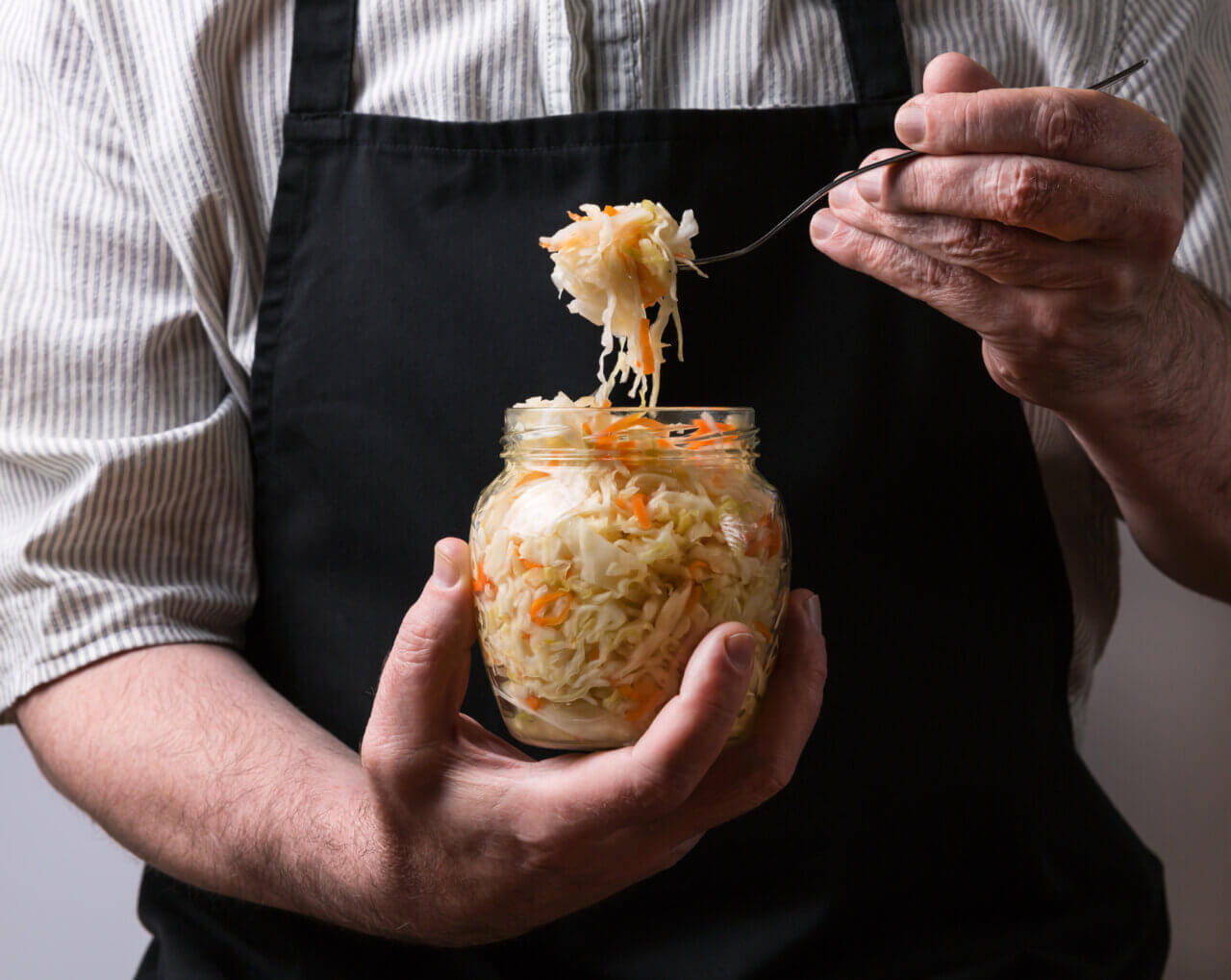Adding more protein rich foods to your diet

Every cell in your body contains protein. Proteins are often called the building blocks of life, because they’re vital to maintain and repair cells. They’re also important for healthy growth and development in children, teens and pregnant women. There are 20 proteins the human body needs for optimal health. Eleven of these we can make ourselves; the remaining nine must be obtained from food and are called essential proteins.
How Much Protein Do I Need In My Diet?
The United States Department of Agriculture (USDA) recommends that 10 – 35% of your daily caloric intake come from protein. For example, if you’re on a 2,000-calorie a day diet, protein should account for 200 – 700 of those calories.
It’s important that you choose lean sources of protein. Many high-protein diets are also high in fat. (The USDA recommends no more than 10% of your daily calories come from fat).
Am I Getting Enough Protein?
The typical American gets enough protein in their daily diet. However, most aren’t eating the right kinds of protein. Low-fat proteins from a variety of sources are ideal.
The manner in which we often consume protein isn’t always the best, either. Many people get little to no protein in the morning and eat a protein-heavy dinner. The human body can only use so much protein at any one time. And, our bodies aren’t very good at storing protein for later use. The best way to incorporate protein into your diet is to eat smaller amounts of protein more frequently throughout the day. Eggs are a great way to get some protein in the mornings. You can also snack on nuts or hummus during the day.
The Best Sources Of Protein
Animal Proteins
Proteins derived from animals are complete proteins — meaning they contain all nine of the essential amino acids. Excellent sources of low-fat animal proteins include lean beef (such as sirloin and top round), poultry, fish, eggs and low-fat dairy. Try to limit your intake of red meats, avoid frying and remove skin from poultry and seafood. That way you’ll be sure to get the protein you need without all the fat.
Plant Proteins
For vegetarians, nuts, seeds, legumes (like beans, peas and peanuts), soy products (like tofu and tempeh), whole grains (especially quinoa) and even some leafy greens (like spinach) contain high amounts of protein. It’s best to limit the amount of nuts you consume, however, because they can be high in fat.
It’s crucial that vegetarians derive protein from a varied diet. Because most plant proteins aren’t complete proteins, vegetarians have to eat multiple kinds of protein in order to get all nine essential amino acids in their diet. A few notable complete plant proteins include quinoa and hummus made with tahini.
Talk To Your Doctor
For most people, you can easily get your daily protein without thinking too much about it. But for some (including vegans, vegetarians and those with kidney or digestive diseases), protein intake can be a point of consternation. If you’re concerned about protein in your diet, talk with a dietician or nutritionist before starting any supplements or making drastic changes to your diet.




